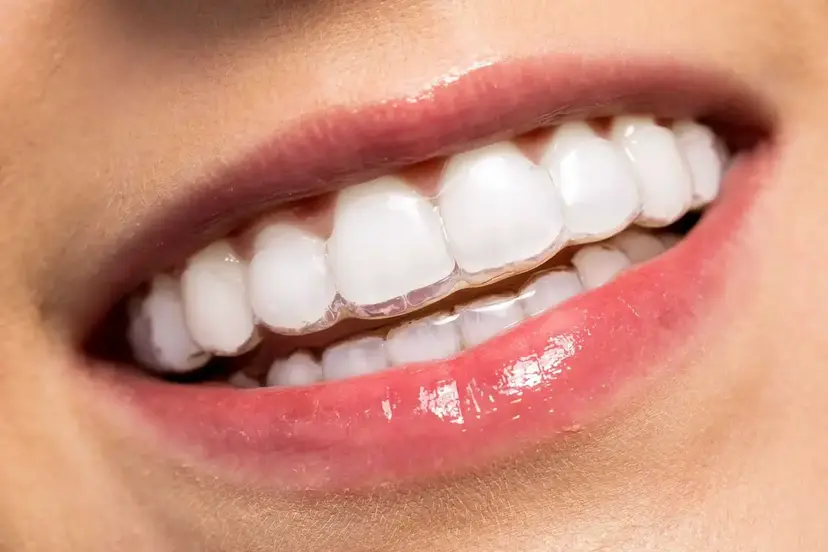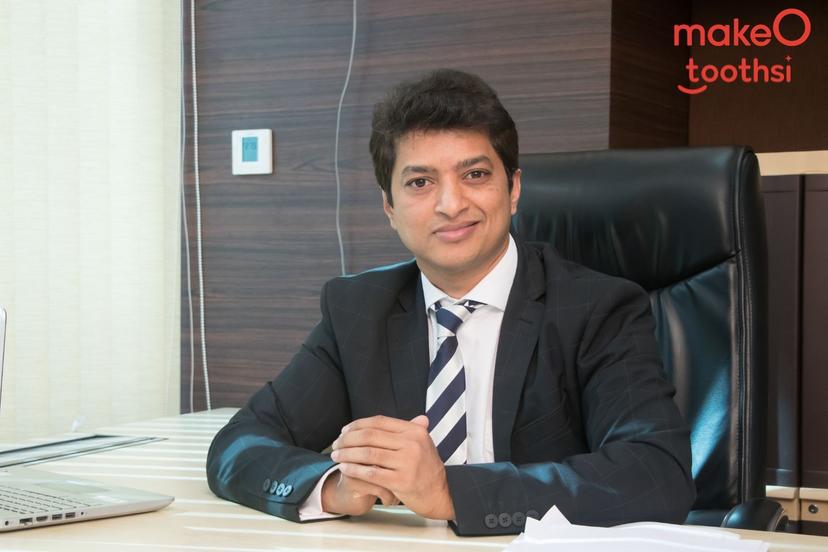MakeO blog
Good oral hygiene is important not only for optimal oral health but also for overall well-being. It can prevent tooth decay, keep gum diseases at bay, avoid oral problems and make you feel confident. Whenever we talk about oral hygiene, brushing comes to mind, but is brushing alone enough to clean your mouth and kill bacteria?
Experts share that it is equally important to floss and use mouthwash as brushing to maintain optimal oral health. So, when to use mouthwash? Before or after brushing?
In this article, the experts at makeO toothsi have explained all about the right time to use mouthwash in detail.
Read to the end to find innovative tools by makeO that take your oral care routine to the next level.
Benefits of using a Mouthwash
- Kills harmful bacteria
Mouthwash can help to kill harmful bacteria in the mouth, which can help to prevent a variety of oral health problems.
- Removes plaque and tartar buildup
Plaque is a sticky film of bacteria that buildup on the surface of the teeth. If not removed, it can harden into tartar. Tartar can damage teeth and gums and eventually lead to tooth decay and gum disease. Using mouthwash can get rid of plaque and tartar buildup by killing bacteria and loosening plaque.
- Ensures fresh breath
Bacteria in the mouth is the main culprit behind bad breath. Mouthwash can effectively kill these bacteria, giving you fresh, minty breath.
- Keeps gum diseases at bay
Gum disease is a serious enemy of your oral health. Mouthwash can help to prevent gum disease by killing bacteria and reducing plaque buildup.
- Strengthens teeth
Some mouthwashes contain fluoride, which can help to strengthen teeth and prevent tooth decay in the long run.
- Reduces sensitivity
Mouthwashes with fluoride are the best bet for people with sensitive teeth. Fluoride strengthens the enamel of the teeth and reduces sensitivity.
- Whitens teeth
If your mouthwash contains peroxide, it can help whiten your teeth. Just ensure to use it sparingly for the best results.
When is the correct time to use a mouthwash?
If you are wondering whether to use mouthwash before or after brushing, you first need to understand how dental cleaning works.
Brushing and flossing remove stuck food particles, plaque and bacteria from your teeth and gums while a mouthwash can help to kill any remaining bacteria. Mouthwash can also help to freshen your breath and reduce inflammation in your gums.
The best time to use mouthwash is after brushing and flossing. If you use mouthwash before brushing, it may not be as effective at killing bacteria. This is because the plaque and food debris on your teeth will shield the bacteria from the effects of the mouthwash.
On top of that, some mouthwashes contain alcohol, which can dry out your mouth and make it harder for the fluoride in your toothpaste to work effectively.
Things to look out for in a mouthwash
- Look for effective anti-gingivitis and anti-bacterial properties
- Determine the type of mouthwash suitable for your oral condition - cosmetic, fluoride, antibacterial, antiseptic, alcohol-free, whitening, or lubricating.
- If you have a specific oral problem, consult your dentist and let them recommend the best mouthwash for you
- Prefer using a fluoride mouthwash, especially if you are a high-risk cavity patient.
- Use lubricating mouthwash for dry mouth or sensitive teeth.
- Always brush and floss daily for good oral hygiene.
Other helpful ways to improve your oral hygiene
It is important to note that regardless of whether you use mouthwash before or after brushing, it is not a substitute for brushing and flossing. Brushing and flossing are still the most important steps in maintaining good oral hygiene. However, mouthwash can be a helpful addition to a good oral hygiene routine.
To amp up your oral hygiene routine and introduce a touch of innovation to it, makeO has introduced the futuristic Electro toothbrush and a Smart Water Flosser that you can use daily. Both these products and technologies are backed by professionals and get the job done by themselves, making your life easier.
The Electro toothbrush oscillates at a fantastic speed of 40,000 vibrations per minute. It has soft bristles that gently, yet effectively remove the food particles from your teeth. It also comes with a smart timer that ensures your brush for 2 minutes and switches sides every 30 seconds. The Smart Water Flosser is a futuristic flosser that targets the stream of water right between your teeth. It comes with 4 different modes to meet all your daily needs.
Conclusion
In a nutshell, it is preferable to brush your teeth and floss before moving on to the mouthwash. However, if you have some special oral problems, it is important to consult with your dentist to determine the best approach for individual oral health. To know more, visit makeO toothsi today!
FAQs
How long should you use the mouthwash?
Swish the mouthwash in your mouth for about 30-40 seconds, or as mentioned on the bottle.
How often do you need to use a mouthwash?
You can use mouthwash twice a day for the best results.
Should you mix mouthwash with water?
If the mouthwash seems too strong, you can dilute it with water. It is safe and does not make the mouthwash less effective, provided you do not dilute it too much.
Does mouthwash after brushing whiten teeth?
Brushing removes all the food particles from the teeth and mouthwash kills the harmful bacteria. Both these actions prevent bacterial growth in the mouth, preventing bad breath and yellowing of the teeth.
How long do you have to wait after mouthwash to eat?
Once you rinse the mouthwash properly, you should be able to eat or drink anything. However, it is safe to refrain from consuming anything for 30 minutes after using a fluoride mouthwash.
related categories
Related articles

Types of Braces: Removable vs Fixed Braces, Which is Right For You?

This Diwali, Smile Bright With makeO Teeth Whitening Kit

Dr. Pravin Shetty: Pioneer in Lingual Orthodontics & Innovative Smile Solutions
How do I Know I’m the Right Candidate for makeO toothsi Teeth Aligners?

